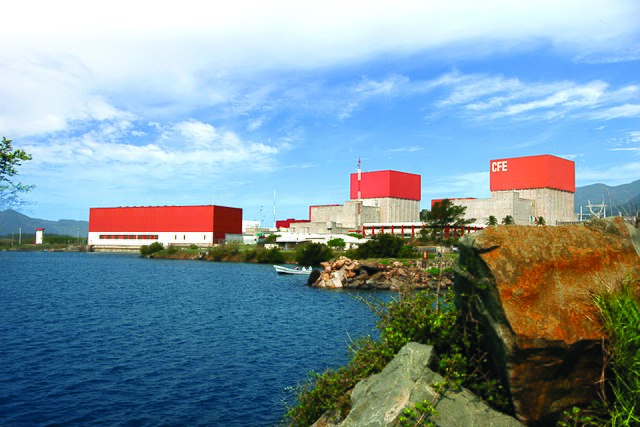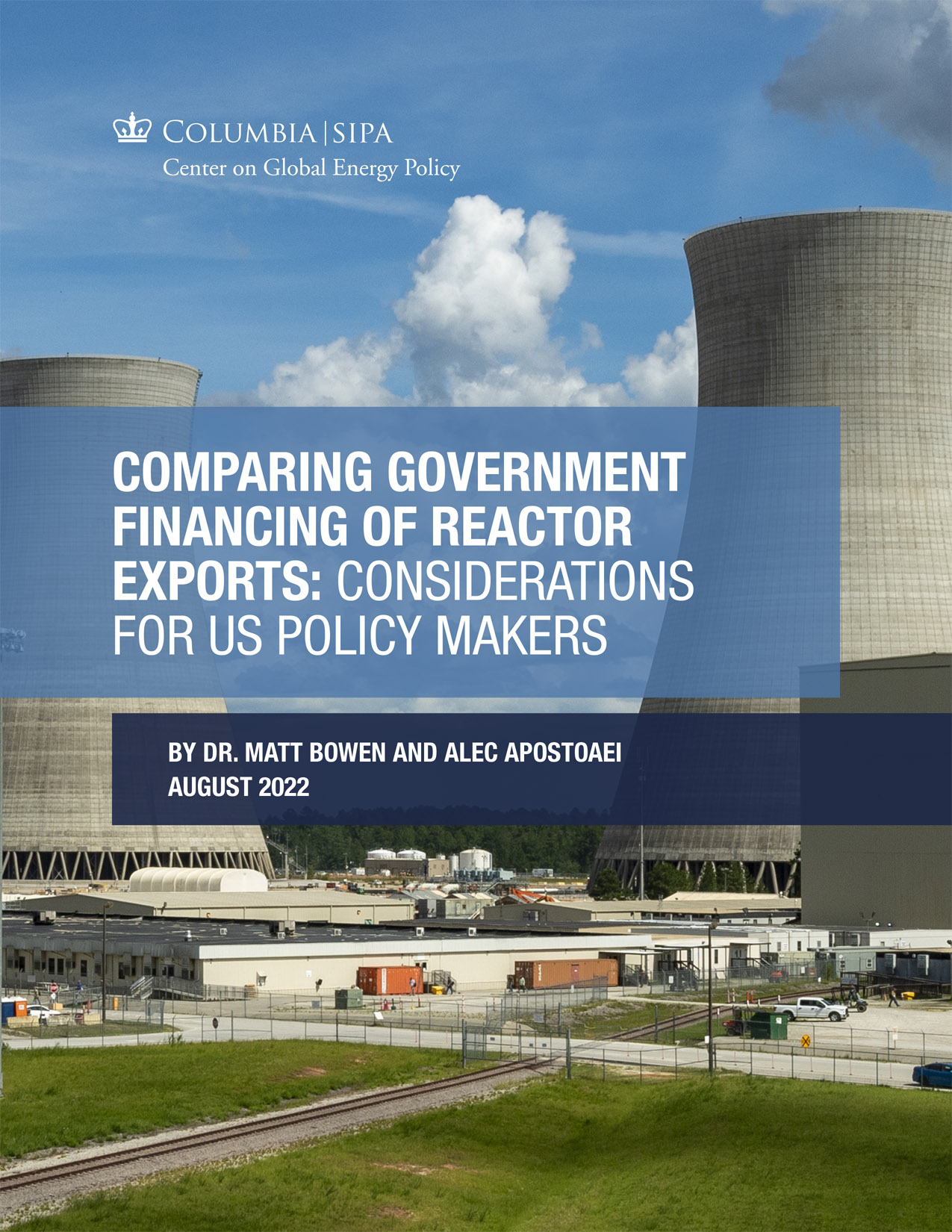The vacuum vessel of the WEST. (Photo: CEA)
Research by scientists at the Department of Energy’s Princeton Plasma Physics Laboratory (PPPL) and collaborating institutions has the potential to improve plasma performance in tokamak nuclear fusion reactors, according to a recent paper in Nuclear Fusion. The research focused on the use of a PPPL-developed dropper to apply coatings of boron powder to the tungsten components inside a tokamak, thereby helping protect the tungsten against the intensely hot plasma. According to lead author Grant Bodner, this process offers “a way to deposit boron coatings without turning off the tokamaks’ magnetic field.”
IAEA director general Rafael Mariano Grossi (at right) inspects damage at Ukraine’s Zaporizhzhia plant on September 1. (Photo: Fredrik Dahl/IAEA)
HALEU in the form of 1.5–3 kg reguli ready for fuel fabrication. (Photo: INL)
Those who welcomed the $700 million earmarked for high-assay low-enriched uranium (HALEU) supply in the Inflation Reduction Act of 2022 (IRA) in August have cause to celebrate again. The White House sent a supplemental appropriation request to Congress on September 2 that would provide more than double the IRA funds if passed—$1.5 billion—for the Department of Energy’s Office of Nuclear Energy to build a reliable supply of both low-enriched uranium for existing U.S. nuclear power plants and HALEU for the advanced reactors that will be built within the decade.
Artistic rendering of a Rolls-Royce SMR plant. (Image: Rolls-Royce)
Just one week after entering into an exclusive agreement with a Dutch nuclear development company to deploy small modular reactors in the Netherlands, U.K.-based Rolls-Royce SMR has announced the signing of a memorandum of understanding with Škoda JS to explore “areas of collaboration” for SMR deployment in both the Czech Republic and elsewhere in Central Europe.
The twin-unit Hatch plant (Image: Southern Nuclear)
Southern Nuclear, operator of the two-unit Hatch nuclear plant, announced yesterday that it will seek subsequent license renewals (SLR) for both reactors.
The Diablo Canyon nuclear power plant.
Bowing at last to the unflagging efforts of nuclear advocates over the past few years—as well as to more recent pressure from a former nuclear opponent, Gov. Gavin Newsom—the California legislature late last night approved S.B. 846, a measure that provides the option of extending operations at the Diablo Canyon nuclear power plant for five years beyond its scheduled 2025 closure date.
Pacific Gas and Electric, Diablo Canyon’s owner and operator, had agreed in June 2016 to an early shuttering of the facility, following discussions with organized labor and environmental organizations. PG&E’s application to close the plant was approved by the California Public Utilities Commission in January 2018.
The bill passed easily through both legislative chambers: 67–3 in the General Assembly and 31–1 in the Senate.
The Laguna Verde nuclear power plant. (Photo: HFStudio)
Unit 2 at Mexico’s Laguna Verde nuclear plant has been given the go-ahead to operate into the 2050s, plant owner and operator Comisión Federal de Electricidad (CFE) announced last week.
Mexico’s secretary of energy, Norma Rocío Nahle García, approved a 30-year extension to the unit’s operating license on August 25, following a review by the country’s National Commission for Nuclear Safety and Safeguards. The reactor, one of two at the plant, is now authorized to run until April 10, 2055.
A digital rendering of Egypt’s El Dabaa plant. (Image: Nuclear Power Plants Authority)
Korea Hydro and Nuclear Power (KHNP) has signed a contract with Atomstroyexport JSC—the engineering division of Russia’s Rosatom—to build the turbine islands for Egypt’s El Dabaa nuclear power plant, construction of which commenced just last month with the pouring of first concrete.
IAEA director general Rafael Mariano Grossi (center) with his team of nuclear safety, security, and safeguards experts at the Vienna International Airport on August 29, prior to their departure for Ukraine’s Zaporizhzhia nuclear power plant. (Photo: Dean Calma/IAEA)
After months of urgent entreaties to both the Ukrainian and Russian governments to allow the International Atomic Energy Agency access to the embattled Zaporizhzhia nuclear plant, IAEA director general Rafael Mariano Grossi yesterday set off for the facility, accompanied by a team of nuclear security, safety, and safeguards experts.
California's Diablo Canyon nuclear power plant.
A bill to extend operations at California’s Diablo Canyon nuclear plant beyond 2025 debuted last evening in the California legislature. Lawmakers have until Wednesday—the end of the current legislative session—to vote on the measure.
Coauthored by State Sen. Bill Dodd (D., Napa) and Assemblymember Jordan Cunningham (R., San Luis Obispo), Senate Bill 846 includes a $1.4 billion forgivable loan to Pacific Gas and Electric (PG&E), the plant’s owner and operator, matching the amount in the August 12 proposal from Calif. Gov. Gavin Newsom. Instead of Newsom’s proposed option for a 10-year life extension for the facility, however, SB 846 would keep the plant running for an additional five years only.
Francesco Venneri (left), USNC CEO, and Hyeon Sung Hong, Hyundai Engineering CEO, at a framework agreement signing for MMR project development and deployment.
Representatives of Ultra Safe Nuclear Corporation (USNC) of Seattle, Wash., and Hyundai Engineering of Seoul, South Korea, traveled last week between USNC project sites in Oak Ridge, Tenn., and Ontario, Canada, to sign two agreements extending their collaboration on the deployment of USNC’s high-temperature, gas-cooled Micro Modular Reactor (MMR). The agreements expand on a business cooperation agreement signed in January 2022 and an engineering agreement signed in June, and follow the closure earlier this month of a previously announced $30 million equity investment after its review by the U.S. Treasury Department’s Committee on Foreign Investment in the United States.



 The Nuclear Regulatory Commission last Friday announced the publication of its
The Nuclear Regulatory Commission last Friday announced the publication of its 








 As energy security and environmental concerns prompt some countries to increase their reliance on nuclear energy or become first-time adopters of the technology, the U.S. government must decide whether it will offer financing for reactor exports—a move that poses financial risks but could create jobs, address global climate and energy security challenges, and limit Chinese and Russian influence. A new
As energy security and environmental concerns prompt some countries to increase their reliance on nuclear energy or become first-time adopters of the technology, the U.S. government must decide whether it will offer financing for reactor exports—a move that poses financial risks but could create jobs, address global climate and energy security challenges, and limit Chinese and Russian influence. A new 
 The deadline for first-round applications to the Department of Energy’s
The deadline for first-round applications to the Department of Energy’s 

